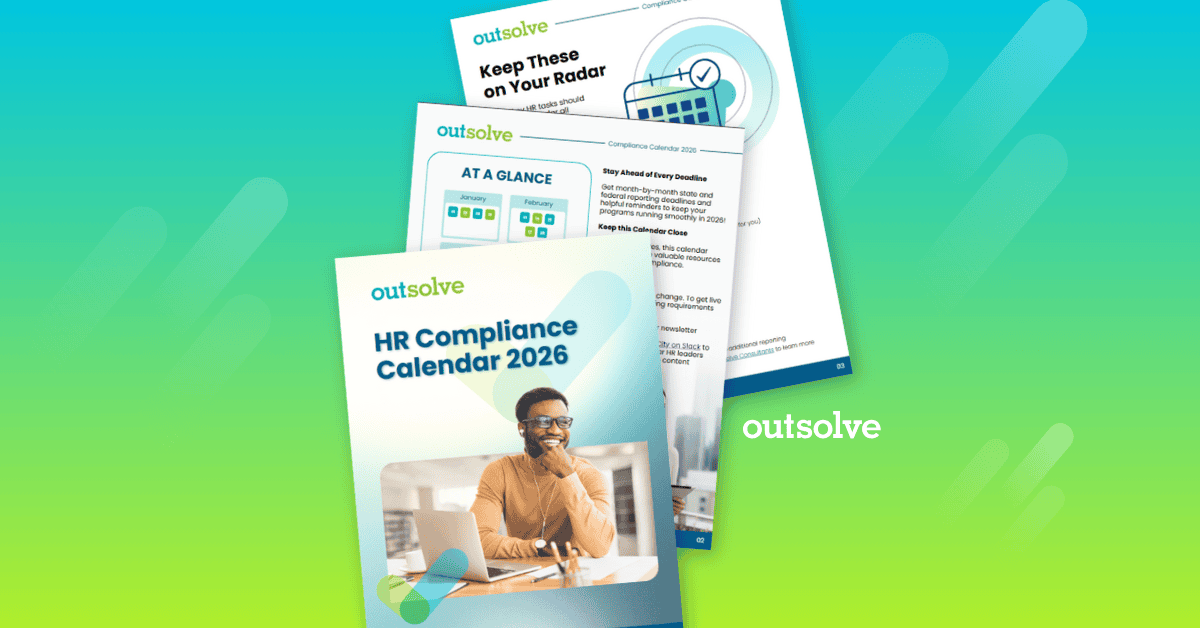
As the world of workplace fairness and equity evolves and expands, pay transparency continues to be a hot topic. States across the U.S. are adopting various pay transparency laws, and Illinois is no exception.
What does all of this mean for you as an HR professional? How do these changes impact your hiring practices, compensation structures, and overall employee relations?
Let’s take a look at the Illinois pay transparency law, what it entails, how it affects employers, and best practices for compliance. This article will teach you:
- What the new Illinois law requires
- What is now prohibited in hiring under the new law
- Key responsibilities HR compliance professionals must complete to stay compliant
Why Pay Transparency Matters
Illinois recently joined other states in prioritizing transparency by passing a pay transparency law, the objective being to prevent pay inequality and ensure greater equity in the workplace. For employers, this new legislation presents a challenge—and an opportunity—to cultivate a more open and equitable workplace culture. In order to do so, you must fully understand the law’s requirements and make sure that your hiring and compensation practices are sound and compliant.
Both employers and employees are focusing more and more on pay transparency. This includes employers proactively offering information about compensation, often breaking down the details in ways that provide employees and candidates insight into what they can expect in terms of compensation for a specific job.
If you post jobs in multiple states, download our State Pay Transparency Law Guide today to ensure you are complying with each state's requirements
Overview of Illinois Pay Transparency Law
Officially known as the Illinois Pay Transparency Act, the law took effect on January 1, 2025. The main purpose of the law is to encourage pay equity and provide increased visibility into how salaries are determined for specific positions. As with similar laws in other states, Illinois' legislation strives to combat gender pay gaps, racial wage disparities, and other forms of inequity by making pay information accessible to all employees and job applicants.
Key Requirements for Employers
The Illinois Pay Transparency Law comes with several key provisions designed to “level the playing field” for both employees and job seekers. The following are the most significant requirements for compliance:
- Pay Disclosure Requirements: Employers in Illinois need to disclose pay ranges and benefits information for all job openings they post. This is for both exempt and non-exempt job postings. Employers must provide the anticipated salary range and a general description of any benefits and other compensation, such as bonuses, stock options, or other incentives that the company reasonable expects to offer. This disclosure must happen during the hiring process and job applicants must be given the opportunity to receive this information upon request.
It’s important to note that while employers need to describe the type of benefits, they are not required to give specific details, terms or conditions, or dollar values.
Other key considerations include:- When to disclose pay ranges? Employers must include the salary range in all job postings, both internal and external job opportunity postings. This ensures that job seekers know what to expect in terms of compensation before applying.
- Salary disclosures during hiring? Employers must also be prepared to share salary ranges during the interview process. While the law doesn’t mandate offering an exact figure, there must be a clear indication of compensation range for the role.
- Upon request? If a job applicant specifically asks for the salary range, it must be provided, even before an interview or offer is made.
- Who does this law apply to? The law applies to employers with 15 or more employees. The job must be physically performed in either Illinois (or at least in part) or outside of Illinois but the employee will report to a supervisor, office, or other work site in Illinois.
- Prohibition Against Pay Inquiries: Under the Illinois Pay Transparency Law, employers are prohibited from asking candidates about their salary history. This helps prevent wage gaps based on past pay and ensures that salaries are determined by the specific role and the market as opposed to the history of an individual’s prior salary .
This means HR will need to adjust how they evaluate candidates’ compensation expectations. Rather than asking for and relying on a candidate’s previous salary, compensation decisions will need to be based on the job itself, industry standards, and the internal equity of your organization. - Employee Rights: Employees are granted new rights under the Illinois Pay Transparency Law, focused on greater equity within the workplace. Some of the key employee rights include:
- Access to pay information: Employees can request pay details about their role or a role they are being considered for, supporting transparency in salary and wage setting.
- Right to equal pay: Employees who believe they are being paid less than their peers for similar work now have a clearer path to take action or raise concerns, knowing that pay ranges are publicly available. A best practice for employers would be to conduct an annual pay equity audit to ensure your salary structure is compliant.
- Recordkeeping & Compliance Obligations: Illinois employers need to maintain records for a period of 5 years that demonstrate compliance with the Pay Transparency Law. These records must include details about the pay scale and benefits for each role posted, how those compensation figures were determined, how pay is evaluated, and a copy of the job posting for each position. HR should facilitate these recordkeeping requirements.
Penalties for Non-Compliance with the Iillinois Pay Transparency Law
Failure to comply with the Illinois Pay Transparency Law can result in significant consequences for employers. The law is enforced with fines, penalties, and other enforcement actions by the Illinois Department of Employment Security (IDES).
Employers who fail to include salary ranges in job postings or violate other aspects of the law may face severe fines and penalties. Worst case scenario - employers could be subject to lawsuits from affected employees or job applicants, leading to potential legal fees, negative impacts to their business, and damage to the company’s reputation.
Pay Transparency’s Impact on Employers & HR Best Practices
So, how can HR help employers position themselves for compliance with this law? Here are a few best practices:
- Update Job Descriptions: Confirm that all job postings include accurate and up-to-date salary or hourly wage ranges and create a template to use for all future job postings, ensuring continued compliance.
- Review Compensation Structures: Review your company’s overall compensation structure. Are pay ranges aligned with the market? Are internal equity considerations being considered? The transparency law will require you to be more diligent in these areas. Also, make sure HR has a process to review compensation structures on a regular basis.
- Train Hiring Managers: Your hiring managers and recruiters will need to be educated on the new law to ensure compliance during the hiring process. This includes understanding when and how to disclose salary information and how to avoid asking salary history questions.
- Consider Multi-State Compliance: For companies operating in multiple states, it’s essential to stay up to date with similar laws. Illinois is one of many states that has enacted pay transparency laws, and each state has its own unique requirements. Consider working with a compliance expert, like OutSolve, to ensure full compliance. You can also consult our Ultimate Guide to Pay Transparency Laws by State to see what each state requires.
Additional Resources & Next Steps
To help you stay proactive and in compliance with the new law, here are some additional resources that can guide you through this process:
- Full Text of the Law: Access the full text of the Illinois Pay Transparency Law to deepen your understanding of all the requirements and obligations. You can find it on the Illinois state government website.
- OutSolve’s Ultimate Guide: This article includes an overview of the key components of each state’s law. For those seeking a more comprehensive understanding of pay transparency laws across the U.S., check out OutSolve’s Ultimate Guide to State Pay Transparency Laws. This resource provides valuable insight into the nuances of each state’s laws and how to stay compliant.
- Work with Compliance Experts: For many employers, compliance with pay transparency laws may require additional resources. Working with a compliance expert, such as OutSolve, can help ensure that your organization continues practices that follow this law.
What Pay Transparency Laws Means for Your Company
The Illinois Pay Transparency Law took effect on January 1, 2025 and represents a major shift in how employers handle and communicate compensation information. Being proactive about understanding and implementing the law’s requirements will help avoid penalties and keep you in compliance.
For HR, the key takeaway here is that proactive management is crucial. Make sure to update job postings, refine your compensation structure, train your hiring managers and recruiters, and stay up to date with any other changes in the law. This will help support your company’s compliance and contribute to a more transparent, equitable workplace.
If you’re unsure about how to proceed or need expert guidance when it comes to compensation benchmarking or conducting pay equity audits, reach out to us at OutSolve. Our team of compliance specialists can help you navigate through the various components of the Illinois pay transparency law and partner with you to make sure that your organization is fully aligned with this legislation.
Sarah Jane Ladut plays a vital role in leading compensation projects at OutSolve, where her ability to work efficiently and collaboratively with clients ensures the successful execution of complex initiatives. She brings expertise in external market benchmarking and supports the design and interpretation of Multiple Linear Regression analyses, translating complex data into actionable recommendations. Sarah Jane is an expert in state pay transparency laws and provides guidance to companies nationwide on how to remain compliant with the requirements. She is also the product manager for compensation consulting services at OutSolve, helping to develop new products and make adjustments to existing products as laws change and evolve. Her background in Non-Discrimination in Employment, EEO-1 reporting, and VETS-4212 reporting strengthens her understanding of compliance and workforce equity. With a B.S. in Psychology from Northwestern State University and an M.S. in Industrial/Organizational Psychology from Southeastern Louisiana University, Sarah Jane applies analytical rigor and organizational insight to help clients build fair, defensible, and competitive compensation programs.
Weekly OutLook
Featured Posts

HR Compliance Checklist: What Every HR Pro Needs to Know

New Year, New Deadlines: 2026 HR Compliance Calendar
Related Posts

How to Compliantly Recruit for Section 503 and VEVRAA
Recruiting under Section 503 and the Vietnam Era Veteran’s Readjustment Assistance Act (VEVRAA) can feel like a balancing act, combining compliance...

Common Mistakes Employers Make in Pay Equity Audits
This article is part of an ongoing legal series designed to provide insight and practical guidance on current and emerging workplace compliance...

5 Key Compliance Items HR Can’t Afford to Ignore
Staying ahead of compliance changes can feel like a race against time for anyone in HR. Policies change and reporting requirements expand, making...
 Sarah Jane Ladut
Sarah Jane Ladut
